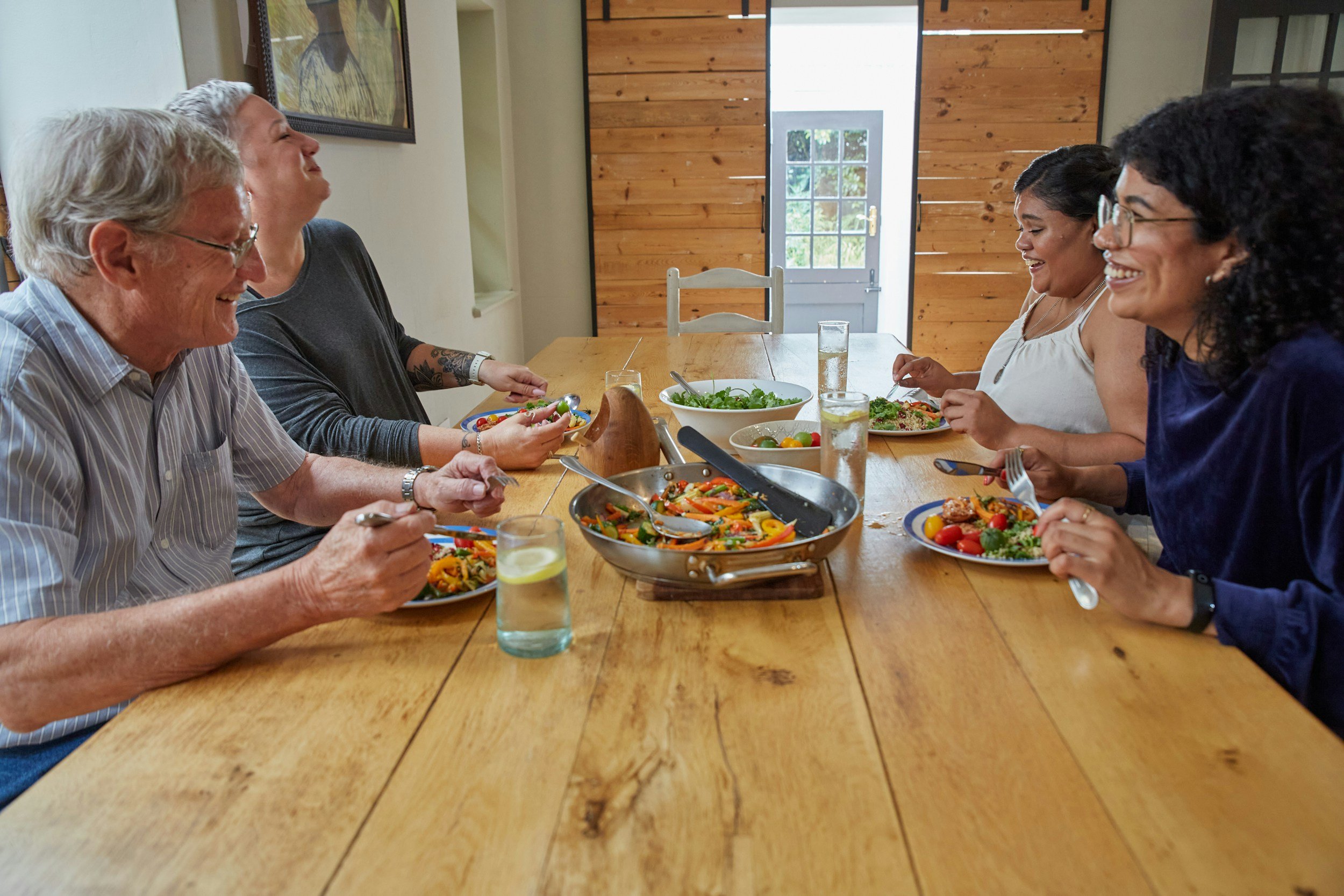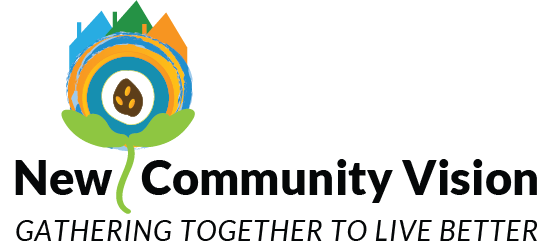
How it Works
Creating Thriving Co-Living Homes
Connecting it all together
1
Frequent Social Gatherings
We believe that gathering socially and often is essential for getting a sense of people in general. Before households form, we will host casual, recurring in-person events to help potential residents connect naturally. These gatherings help us understand who will thrive together—and ensure authentic community, not just compatibility on paper.
2
How to find the right people
Our goal is hosting gatherings where people will meet many others. If people want to consider forming a household, we will support them. Our process requires that all candidates and employees take training on successful group living. Additionally, attendance at the monthly communication tune-ups is required.
Each person has a contribution to make whether it’s cleaning, cooking, yard work, decorating, maintenance and repair, tech support, a vehicle and a driver, or emotional support. Some residents may receive reduced rent in exchange for labor.
5
Inclusive Design
As much as possible, our homes are designed to be ADA accessible, enabling people to age in place or live comfortably with physical limitations. We welcome people from all walks of life who are committed to co-creating a healthy environment.
3
Clear Agreements
Each resident signs a co-living agreement outlining house expectations and responsibilities. These form the backbone of our “loosely knit family” approach.
6
Trial Periods & Flexibility
New residents are welcomed with a one-to-three-month trial period, allowing both sides to assess the fit. If it doesn’t work out, we honor an "easy in, easy out" policy.
4
Household Management
Each home is overseen by a dedicated household manager, a nurturing presence that makes the house feel like home and helps with: resident selection, creating emotional harmony, managing home infrastructure, ensuring consistent cleanliness and functionality
Memberships
Anyone who is interested can become a member by paying a fee that includes a 3-month trial, and maintaining their profile and the information they share.
Our database will include profiles of homeowners, home seekers, descriptions of the participants, the homes, and what each member seeks.
When the fee is implemented, I intend to donate 25 percent of the fee evenly split (12.5 % each) to the organizations of the member’s choosing. Half of the fee (12.5%) will go to the congregation of the member’s choosing and the other half (12.5% ) to a Village chapter. If a prospective member is not currently a member of a congregation or a Village chapter, we will steer you toward one.
Social Gatherings
We will host social events where people meet others and, as housing is on the minds of many, it is a predictable discussion topic.
Household Manager
A skilled household manager is the fulcrum on which each household pivots and is the key to developing clean, cute, charming, harmonious, and well managed households. Household managers will be carefully selected and trained.
All households require the same chores: cooking, cleaning, handyman, yard and garden work, shoveling, technical expertise, decorating. The concept is that the household manager, an executive-level position, selects the occupants based on mutual chemistry and the chores that need done, ensuring that the household functions smoothly, that the vibe is healthy, and that everything works. Screening, training, and attending monthly facilitated communication tune-ups will be required of all employees and residents.
Training on group living, and monthly communication tune ups are a prerequisite for employees and residents alike. The goal is to develop high functioning, harmonious, and comfortable households. Baseline agreements that establish guidelines for successfully living with others is a good starting point. From there, we will require attending regular facilitated communication tune-ups.
The world needs more diners
With the real estate development company described below, I believe that there is opportunity to buy a storefront to develop a diner that serves as a community hub.
Food service is a lot of work, so I envision recruiting food service professionals to form a cooperative. Presumably, as a co-op, enough member-owners could spread the labor to be open from breakfast through dinner, with potential to offer prepared food for carry out.
The booming prepared food industry will continue to grow (the global prepared food market is expected to grow at a compound annual growth rate (CAGR) of 5.7% from 2023 to 2032) and presents a potentially lucrative opportunity.
The main draw will be a diner - an affordable, lively hub where residents and community members engage with each other casually and often. Ideally, the storefront will have a separate space that is suitable for workshops, classes, meetings, music, dancing, or anything else.
I envision a women-owned real estate development company focusing on housing and hospitality. This big picture idea offers plenty of opportunity for people with expertise in any of the following areas:
• Legal
• Real estate
• Construction
• Finance
• Marketing
• Human Resources
• Project management
• Social work
• Childcare
The need is bottomless so opportunities to partner together and/or invest abound.
FAQs
1. What is home sharing?
Home sharing is a living arrangement where unrelated adults share a home—each with private space and shared common areas. It’s designed to offer both affordability and companionship.
2. Who is home sharing for?
Anyone seeking community, stability, and connection. This can include seniors, single parents, working professionals, creatives, or people in life transitions.
3. How are housemates matched to live together?
Ideally, housemates will choose each other because they already know each other or have connected through our monthly gatherings. We’ll help guide that process and ensure a good fit based on shared values, compatible lifestyles, and a mutual commitment to contributing to the home, whether that means cooking, cleaning, gardening, or other ways of supporting one another. We're here to guide you in the right direction.
4. How is conflict handled?
Training on living successfully with others will be required for all residents, including employees. Attending monthly facilitated communication tune-ups will also be required. This will prevent misunderstandings from hardening into resentments. (how do I reduce the space between the numbered line and the next line?)
5. What if the living situation doesn’t work out?
All arrangements include a trial period (usually 1–3 months) and an easy in, easy out policy, allowing for a graceful exit if it’s not a good fit.
6. Is home sharing safe?
Yes. We use a thoughtful vetting process that includes interviews, references, and community input to ensure a safe, respectful environment.
7. Do I have to share everything?
No. Each person has their own private space. Shared areas include the kitchen, living room, and possibly a garden or outdoor space—depending on the home.
8. Can I have guests or pets?
Each home sets its own guidelines, agreed upon by residents. In many cases, pets and guests are allowed within those agreements.
9. Is this just for people who can’t afford to live alone?
Not at all. Many choose home sharing for the emotional and social benefits. It’s about living well—with people who care.
